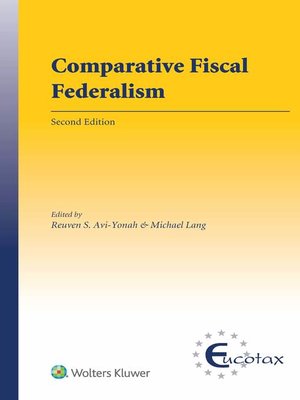
Sign up to save your library
With an OverDrive account, you can save your favorite libraries for at-a-glance information about availability. Find out more about OverDrive accounts.
Find this title in Libby, the library reading app by OverDrive.



Search for a digital library with this title
Title found at these libraries:
| Loading... |
Judicial review of taxation in the world's two most economically significant multistate systems, the European Union and the United States, has exposed a remarkable divergence. Although there are important differences between the competences of the two tribunals, the fact remains that the European Court of Justice has been much more aggressive in striking down Member State income tax rules than has the United States Supreme Court in comparable cases. This book – the only full-scale comparative analysis of the tax jurisprudence of the two judicial systems, now in an updated second edition – asks: Why this divergence? And what can the two tribunals learn from each other about adjudicating issues that arise from the interaction of tax regimes in the context of a single market?
Among the contributory issues and topics covered are the following:
An insightful and penetrating analysis of a topic of material importance to governments, tax policy makers, and tax lawyers on both sides of the Atlantic, this book clearly explains how the Supreme Court and the Court of Justice continue to struggle with the conflict between generally accepted tax principles and the effective prevention of discriminatory treatment of taxpayers. All tax professionals concerned with the interaction of sovereignty, tax assignment, legislation, and judicial decisions in tax law will benefit greatly from its clearsighted and comprehensive treatment, as well as from its perspectives on the practical implications of each tribunal's decision making.






